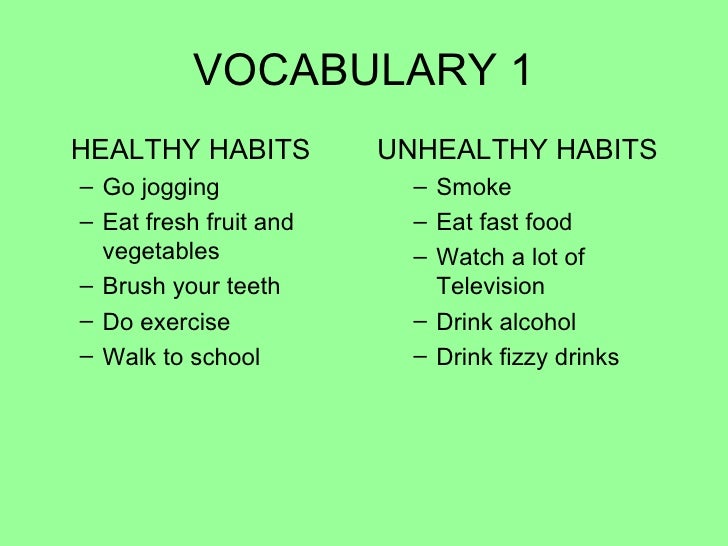PRACTICE PREPOSITIONS
martes, 4 de diciembre de 2018
TIME PREPOSITIONS
COPY IN YOUR NOTEBOOK THE FOLLOWING USES OF TIME PREPOSITIONS.
| in | on | at |
Months: in January / in April
Seasons: in spring / in winter Years: in 1984 / in 2015 Centuries: in the 20th century Times of day: in the morning / in the evening Longer periods of time: in the past / in the 1990s / in the holidays |
Days of the week: on Monday
Days + parts of days: on Tuesday afternoon / on Saturday mornings Dates: on November 22nd Special days: on my birthday / on New Year’s Eve |
Clock times: at 7.30 a.m. / at 5 o’clock
Festivals: at Christmas / at Easter Exceptions: at night / at the weekend |
In, at, on and no preposition with time words:
Prepositions of time - here's a list of the time words that need 'on', 'in', 'at' and some that don't need any preposition. Be careful - many students of English use 'on' with months (it should be 'in'), or put a preposition before 'next' when we don't need one.
| at |
|
| on |
|
in |
|
|
ADJECTIVES- OPPOSITES
Here you can practice adjectives and the opposites. You can also check the comparison of adjectives.
COMPARATIVE FORM OF ADJECTIVES
We started the unit 3 so, if you want to practice the grammar point we recommend you take a look at this explanation.
Comparative grade of adjective.
Comparative is the name for the grammar used when comparing two things.
This computer is better than that one.
She's stronger at chess than I am.
It's much colder today than it was yesterday.
Our car is bigger than your car.
This grammar topic is easier than most others.
I find science more difficult than mathematics.
Today's ESL lesson was more interesting than usual.
When comparing with than some changes are necessary, depending on the number of syllables the adjective has:
1- syllable adjectives: add -er to the adjective
Note: If the word ends: consonant-vowel-consonant, then the last consonant is usually doubled in the comparative. Examples: big-bigger, fat-fatter, hot-hotter.
2-syllable adjectives ending in -y: change the -y to -ier
Other 2-syllable adjectives: use more with the unchanged adjective
Note: The comparative of some shorter 2-syllable adjectives can be formed with -er.
Examples: simple-simpler, clever-cleverer, narrow-narrower. To be sure which comparative method to use, you will need to consult a good dictionary.
Adjectives with 3 or more syllables: use more with the unchanged adjective
Comparative grade of adjective.
Comparative is the name for the grammar used when comparing two things.
This computer is better than that one.
She's stronger at chess than I am.
It's much colder today than it was yesterday.
Our car is bigger than your car.
This grammar topic is easier than most others.
I find science more difficult than mathematics.
Today's ESL lesson was more interesting than usual.
When comparing with than some changes are necessary, depending on the number of syllables the adjective has:
1- syllable adjectives: add -er to the adjective
- My sister is much taller than me.
- It's colder today than it was yesterday.
Note: If the word ends: consonant-vowel-consonant, then the last consonant is usually doubled in the comparative. Examples: big-bigger, fat-fatter, hot-hotter.
2-syllable adjectives ending in -y: change the -y to -ier
- She's looking happier today.
- This grammar topic is easier than the last one.
- Why is everyone else luckier than me?
Other 2-syllable adjectives: use more with the unchanged adjective
- The shops are always more crowded just before Christmas.
- Is there anything more boring than reading about grammar?
- My sister is more careful with her writing than I am with mine.
Note: The comparative of some shorter 2-syllable adjectives can be formed with -er.
Examples: simple-simpler, clever-cleverer, narrow-narrower. To be sure which comparative method to use, you will need to consult a good dictionary.
Adjectives with 3 or more syllables: use more with the unchanged adjective
- Russian grammar is more difficult than English grammar.
- My sister is much more intelligent than me.
- I find maths lessons more enjoyable than science lessons.
- The older you get, the more irritating you become.
Following are two common irregular comparative forms:

- good-better
- bad-worse
- far- farther/further
- little- less
- much-more

DESCRIPTIONS
Take a look at this link to improve the vocabulary about descriptions. Come on!!!!!
http://www.passporttoenglish.com/Intermediate-English/Lesson14/Vocabulary.html

Now describe two awesome animals you want.
domingo, 2 de diciembre de 2018
DICTATION
DICTATION ABOUT AWESOME ANIMALS
1. It's got soft, black fur. It's fierce. It runs very fast.
2. It's very big and it's got a long horn.
3. It's got a big nose and small eyes. It lives in forests.
4. It's very big and very fierce and it lives near rivers.
5. It's very tall, it's got long legs and a long beak.
6. It's got white fur with black spots and sharp teeth.
7. It's got arms and legs. It's got a tail and climbs trees.
8. It's got big wings and a big beak and it's also got sharp claws.
9. It's big. It's got brown fur and horns
10. It's got long legs, it's got small ears and big eyes. It's shy and lives in forest,
NOW, IN YOUR NOTEBOOK, DESCRIBE AN AWESOME ANIMAL. Don't write the name because your classmates are going to guess it.
1. It's got soft, black fur. It's fierce. It runs very fast.
2. It's very big and it's got a long horn.
3. It's got a big nose and small eyes. It lives in forests.
4. It's very big and very fierce and it lives near rivers.
5. It's very tall, it's got long legs and a long beak.
6. It's got white fur with black spots and sharp teeth.
7. It's got arms and legs. It's got a tail and climbs trees.
8. It's got big wings and a big beak and it's also got sharp claws.
9. It's big. It's got brown fur and horns
10. It's got long legs, it's got small ears and big eyes. It's shy and lives in forest,
NOW, IN YOUR NOTEBOOK, DESCRIBE AN AWESOME ANIMAL. Don't write the name because your classmates are going to guess it.
miércoles, 7 de noviembre de 2018
martes, 6 de noviembre de 2018
lunes, 22 de octubre de 2018
READERS
HERE YOU CAN FIND THE LIST ABOUT THE TITLES THAT YOU CAN CHOOSE TO READ ALONG THE COURSE.
LOW LEVEL
-The rock pool. Ed. Richmond primary readers.
- Blue fins. Ed. Macmillan readers.
- Fat cat's busy day. Ed. Hebling young readers.
MEDIUM LEVEL
- Jemma's jungle adventure. Ed. Oxford.
- Dangerous journey. Ed. Macmillan.
- Newspaper boy. Ed. Macmillan.
HIGH LEVEL
- Invisible. Ed. Oxford.
- Day of the dinosaurs. Ed. Oxford.
- Lost on the coast. Ed. Hebling young readers.
lunes, 15 de octubre de 2018
MORE ADVERBS OF FREQUENCY...
Here I leave you more practice so you can improve and get good results..
1. https://www.englisch-hilfen.de/en/exercises/adjectives_adverbs/adverbs_of_frequency.htm
2. https://elt.oup.com/student/solutions/elementary/grammar/grammar_02_012e?cc=gb&selLanguage=en
3. https://www.tolearnenglish.com/exercises/exercise-english-2/exercise-english-28491.php
martes, 9 de octubre de 2018
domingo, 7 de octubre de 2018
WELCOME
miércoles, 3 de octubre de 2018
NEW SCHOOL YEAR
Here you can check your dictation about " ELECTRONIC GADGETS".
Don't worry about your mistakes. You can improve if you make an effort
and you practice.
1. You put these on your head to listen to music
2. You use this to do Maths.
3. You use this to listen to music.
4. You use this to play electronic games.
5. You use this to see people on your computer screen.
6. You use this to reach charge on electronic gadget.
7. You use this in a car to find places.
8. You use this like a computer.
9. YOu use this to time activities.
10. You use this to save photographs, documents and music.
1. You put these on your head to listen to music
2. You use this to do Maths.
3. You use this to listen to music.
4. You use this to play electronic games.
5. You use this to see people on your computer screen.
6. You use this to reach charge on electronic gadget.
7. You use this in a car to find places.
8. You use this like a computer.
9. YOu use this to time activities.
10. You use this to save photographs, documents and music.
domingo, 22 de abril de 2018
miércoles, 21 de marzo de 2018
lunes, 19 de marzo de 2018
HEALTHY HABITS
HERE YOU CAN IMPROVE YOUR VOCABULARY RELATED TO OUR PROJECT. IT WILL BE A GOOD RESOURCE TO DO A GREAT PROJECT.



lunes, 19 de febrero de 2018
REGULAR VERBS- PAST SIMPLE
HERE YOU CAN PRACTICE MORE ABOUT PAST SIMPLE TENSE ( REGULAR VERBS).

https://agendaweb.org/exercises/verbs/past-simple-regular
https://agendaweb.org/verbs/past-simple-regular/index.html
https://www.englisch-hilfen.de/en/exercises/tenses/simple_past_ed.htm
http://www.focus.olsztyn.pl/en-past-simple-quiz.html#.WoriP67ibIU
http://www.kico4u.de/english/uebungen/unregelmaverb/regel1.htm
PAST SIMPLE I
REVIEW PAST SIMPLE.
Aquí tenemos unos cuantos enlaces para practicar el pasado regular de los verbos ingleses.
Empecemos con unos videos explicativos de la formación del pasado regular en las formas afirmativa, reglas de formación del pasado simple, negativa e interrogativa y expresiones de tiempo pasado:
A continuación tenemos múltiples enlaces con la explicación y muchas y variadas actividades para practicar lo aprendido.
Speed Word: Regular Past Tense Deletreo veloz de pasados regulares
Present Simple or Past Simple? Completa las frases con verbos en presente o en pasado.
(LAS FRASES CON VERBOS IRREGULARES NO TIENES QUE HACERLAS, SI NO QUIERES)
Suscribirse a:
Comentarios (Atom)









